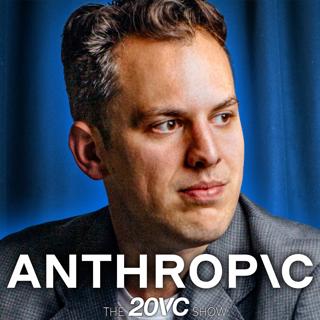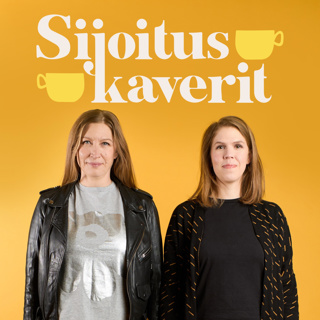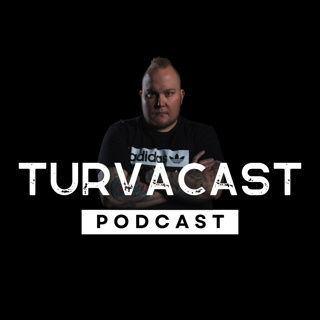
20Product: How to Design and Build Products in a World of Agents | Why AI Will Kill Many SaaS Products | What Products Will Thrive and Die in a World of 100M Developers with Matt Biilmann, Co-Founder and CEO @ Netlify
Matt Biilmann is the Co-Founder and CEO @ Netlify. Under his leadership, Netlify has become one of the fastest-growing platforms for modern web development. Matt recently introduced agent experience (AX), a new way of thinking about how software is built and experienced in the AI era. Matt is also known for coining Jamstack, a concept that redefined how developers build for the web. In Today's Episode We Discuss: 03:43 How Does the Design Process Change When Designing For Agents 06:27 How Does the Product Building Process Change When Building for Agents 12:52 Will AI Kill SaaS Tools 16:12 If Prototyping Becomes Phase 1: Does Figma Survive? 17:35 Is Chat the Best Interface for a World of AI 21:52 Why AI Services Will Be One of the Biggest Economies 27:24 Open vs. Closed Platforms in an Agent-First World 31:09 Specialization of Large Language Models 35:13 Shifting Labor Costs to Agent Spend 36:28 The Future of Stripe and What Happens with 100M Developers in the World 38:39 Quickfire Round: Insights and Predictions
14 Maalis 49min

20VC: Lessons from Investing $2BN and Returning $8BN in Cash | Why Most Venture Partnerships are Broken | We Sold Salesforce Early and Lost Out on Billions | Are The Best Deals Always Expensive and Competitive with Jake Saper @ Emergence Capital
Jake Saper is a General Partner @ Emergence Capital, one of the leading venture firms of the last 20 years. Their many wins include being early investors in Salesforce, Zoom, Veeva and more. In total, the firm has invested $2BN and returned an astonishing $8BN in cash with much more to come. In Today's Episode We Discuss: 04:45 The Zoom Investment Story 10:21 Founder, Market, Traction: Rank Them 26:37 Why Market Pull is the Most Important Thing and How to Know 27:23 Are the Best Deals Always Expensive? 28:25 What is the One Framework Emergence Use for Every Investment 29:08 Lessons from the 16x DPI Zoom Fund 30:44 Why Does Every Partner Do Reference Calls on Every Deal? 35:16 We Have Lied to SaaS Founders: The Revenue Rules Changed 37:53 Where Will Value Accrue in a World of AI? 41:37 Three Reasons Why AI Will Not Replace Vertical SaaS 46:38 Who Wins in AI: Startups or Incumbents? 50:09 Why Should Every Company Aim to Be a "Board Discussion" 55:12 Why is Jake Worried About AI's FTX Moment? 56:00 What Losing Billions on Salesforce Taught Us About Selling 01:00:07 Why Most VC Partnerships are Broken 01:03:07 Grok vs Anthropic vs OpenAI: Buy and Sell? 01:14:25 Quickfire Round: Insights and Reflections Please read the offering circular and related risks at invest.modemobile.com. This is a paid advertisement for Mode Mobile's Regulation A+ Offering. Past performance is no guarantee of future results. Investing in private company securities is not suitable for all investors because it is highly speculative and involves a high degree of risk. It should only be considered a long-term investment. You must be prepared to withstand a total loss of your investment. Private company securities are also highly illiquid, and there is no guarantee that a market will develop for such securities. DealMaker Securities LLC, a registered broker-dealer, and member of FINRA | SIPC, located at 105 Maxess Road, Suite 124, Melville, NY 11747, is the Intermediary for this offering and is not an affiliate of or connected with the Issuer. Please check our background on FINRA's BrokerCheck.
10 Maalis 1h 28min

20Sales: Everything You Know About Sales Playbooks is Wrong | How to Hire and Train Your First Sales Hires | How to Crush Pipeline and Deal Reviews as a Team | How to Structure Sales Teams and Sales Comp Plans with Julian Teixeira, CRO @ 1Password
Julian Teixeira is the Chief Revenue Officer at 1Password, where he has grown B2B revenue over 8x and scaled a team of more than 450 in go-to-market. 1Password set the record for the largest raise in Canadian history at the start of 2022 and has raised nearly $1B in capital throughout his time with the company. Prior to 1Password, Julian served as the head of global sales at Lightspeed Commerce, a company he helped scale from startup to IPO and through over 10 acquisitions throughout his decade-long tenure. In Today's Episode We Discuss: 04:27 Sales Lessons from Scaling to $1BN in ARR 05:20 How to Create and Master a Sales Playbook 07:53 Lessons on First Sales Hires 09:41 Setting Goals and Targets for Sales Teams 13:22 The Reality of Tech Sales Today 16:19 Evaluating and Managing Sales Reps 19:07 Outbound Prospecting and Pipeline Generation 22:22 Hunter vs. Farmer Sales Models 24:15 Compensation and Specialization in Sales Teams 28:56 Outbound vs Inbound Sales 32:47 Pipeline and Deal Reviews 37:37 Sales Tech Stack and Tools 38:40 Maintaining Sales Morale 44:55 Are Remote Sales Teams Less Effective 46:44 Final Thoughts and Advice This episode is brought to you by: Gong, the revenue AI platform centralising all your revenue workflows in a single unified platform. Capchase, helping SaaS companies grow without dilution. Learn more at capchase.com/20vc
7 Maalis 51min

20VC: Lovable on Hitting $17.5M in ARR in 3 Months | Adding $2.1M ARR Every Week | Hitting 85% Day 30 Retention: Better than ChatGPT | The Story of Europe's Fastest Scaling Company with Anton Osika
Anton Osika is the Co-Founder and CEO @ Lovable, the fastest growing startup in Europe. With Lovable, you can turn your idea into an app in seconds with just a prompt. After just 3 months, the company has scaled to $17.5M in ARR. They are adding $2M in net new revenue every single week. Even better, Lovable has 85% Day 30 retention rate, making it more retentive than ChatGPT. In Today's Episode We Discuss: 03:41 How a Side Project Turned into a $200M Company 05:39 Why Talent is 10x More Valuable Than Experience 08:57 How to Use a Waitlist Pre-Launch to 10x Growth 12:29 How to Master a Public Launch: $0 - $1M ARR in a Week 18:02 Why Raise a Large Seed Round 22:22 How Sustainable is Lovable and AI Revenue 25:22 What are Lovable's Biggest Threats: Incumbents or Open Source 27:00 Raising Series A: Should You Always Take the Money 27:46 How to Compete in the US from Europe 28:25 Is Europe as F****** as the World Thinks 29:02 Building in Europe vs. Silicon Valley 31:20 The Future of Foundation Models: Who Wins 33:47 Grok vs OpenAI vs Anthropic: Buy and Short 41:37 Quickfire Round: Insights and Reflections
5 Maalis 50min

20VC: Anthropic CPO Mike Krieger: Where Will Value Be Created in a World of AI | Have Foundation Models Commoditized | When Do Model Providers Become Application Providers | What Anthropic Learned from Deepseek
Mike Krieger is the Co-Founder of Instagram and now CPO @ Anthropic. In Today's Episode with Mike Krieger We Discuss: 03:07 Where Will Value Be Created and Sustained in a World of AI? 04:59 Are Foundation Models Commoditised Today? 08:36 Should Founders Build for the Models of Today or Build for Models of the Future 12:19: Why Will Models Become More Different Than More Similar 16:38: Will Human or Synthetic Data Be More Prominent in the Future 19:28 Model Quality vs. Product UX 23:36 The Competitive Landscape of AI 32:27 Do We Underestimate China's AI Capabilities 33:59 What Did Anthropic Learn from Deepseek 34:07 Is Deepseek a Sustaining and Credible Threat? 37:04 Transitioning from Model Provider to Application Provider 38:26 Where Has Anthropic Chronically Under-Invested 39:08 Why Has Anthropic Been Slow On Consumer Product Development 43:50 What is the Role of a Software Developer in the Future 48:29 Balancing API and Consumer Products 51:09 Is Europe Stronger or Weaker in a World of AI 52:40 Quickfire Round: Insights and Reflections
3 Maalis 1h 6min

20Growth: Inside Ramp's Growth Engine: How Ramp Became the Fastest Growing SaaS Company Ever | What Worked & What Did Not Work | How to Hire for Growth | How to Find Alpha in Channels Where No One Else Can with George Bonaci
George Bonaci is the VP of Growth at Ramp, where he's helping one of the fastest-growing fintech companies scale even further. Prior to Ramp, George was VP of Growth at Gong. Before Gong, George was at Samsara where he helped grow revenue from <$100M to >$650M ARR, and played a pivotal role in the company's successful IPO. In Today's Growth Masterclass We Discuss: 03:57 How the Best Growth Teams Experiment 05:10 How to Allocate Bets and Resources for Growth 07:09 Velocity vs. Quality in Growth 15:05 The Role of Postmortems and How to Do Them 19:16 Growth Team Structure and Standalone or Not? 20:01 The Three Ways to Find Alpha in Growth 30:01 How to Hire for the Best Growth Hires 31:30 How to do Take-Home Assignments When Hiring for Growth 32:51 Common Pitfalls in Hiring Growth Talent 34:16 Investing in Management and Learning 42:43 How AI Changes Growth Products and Strategies 46:43 Quick Fire Round: Common Mistakes and Growth Channels
28 Helmi 55min

20VC: The Insane Story of Glovo: Selling 30% of the Company for €100K | The McDonalds Deal That Saved Them | Running out of Money Three Times | Burning $1M Per Day | Being Acquired for $2.2BN with Oscar Pierre, Founder @ Glovo
Oscar Pierre is the Founder and CEO @ Glovo, the food delivery site that will get you anything you want to your doorstep. This story is insane, the company was started by Oscar 11 years ago, in their pre-seed round they sold ⅓ of the company for €100K. The company was later saved by a deal they made with McDonald's. The company nearly ran out of money on several occasions, one time the funding round came from the CEO of Rakuten who Oscar met an FC Barcelona drinks. Today, they are a part of DeliveryHero who acquired them for $2.2BN, they have delivered 1BN orders and have almost 60M customers. In Today's Episode We Discuss: 04:27 Starting with Nothing 07:30 The First Funding Round: Selling ⅓ of the Company for €100K 09:23 Marketplace Dynamics and Expansion 15:34 The McDonald's Deal That Saved the Company 18:38 Running out of Money Three Times: Fundraising Hell 25:57 International Expansion: What Worked 29:25 Lessons from Failures: What Brazil Taught Us 31:36 How to Win in Emerging Markets 32:02 The Burn Rate (Burning $1M per day) and Investor Concerns 33:29 Scaling Challenges and Competitor Threats 34:29 The Biggest BS Elements of Company Values 35:40 How I Ruined the Culture of the Company 41:14 Layoffs and Talent Management 42:06 Biggest Lessons from M&A 44:41 The Future of Quick Commerce 45:38 Acquisition by Delivery Hero 48:56 Post-Acquisition Reflections 54:47 The CEO on Trial and Facing Prison
26 Helmi 1h 7min

20VC: Why Google Will Win the AI Arms Race & OpenAI Will Not | NVIDIA vs AMD: Who Wins and Why | The Future of Inference vs Training | The Economics of Compute & Why To Win You Must Have Product, Data & Compute with Steeve Morin @ ZML
Steeve Morin is the Founder & CEO @ ZML, a next-generation inference engine enabling peak performance on a wide range of chips. Prior to founding ZML, Steeve was the VP Engineering at Zenly for 7 years leading eng to millions of users and an acquisition by Snap. In Today's Episode We Discuss: 04:17 How Will Inference Change and Evolve Over the Next 5 Years 09:17 Challenges and Innovations in AI Hardware 15:38 The Economics of AI Compute 18:01 Training vs. Inference: Infrastructure Needs 25:08 The Future of AI Chips and Market Dynamics 34:43 Nvidia's Market Position and Competitors 38:18 Challenges of Incremental Gains in the Market 39:12 The Zero Buy-In Strategy 39:34 Switching Between Compute Providers 40:40 The Importance of a Top-Down Strategy for Microsoft and Google 41:42 Microsoft's Strategy with AMD 45:50 Data Center Investments and Training 46:40 How to Succeed in AI: The Triangle of Products, Data, and Compute 48:25 Scaling Laws and Model Efficiency 49:52 Future of AI Models and Architectures 57:08 Retrieval Augmented Generation (RAG) 01:00:52 Why OpenAI's Position is Not as Strong as People Think 01:06:47 Challenges in AI Hardware Supply
24 Helmi 1h 12min






















